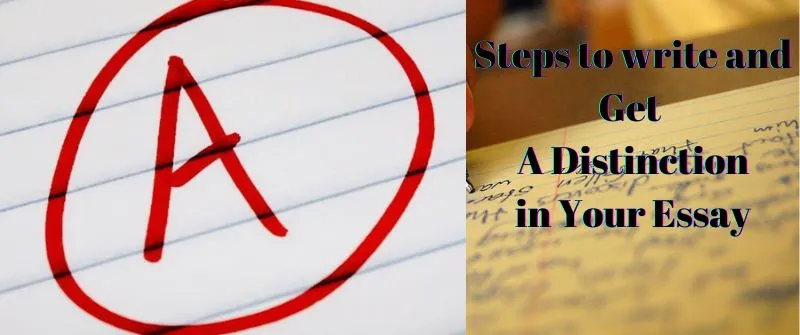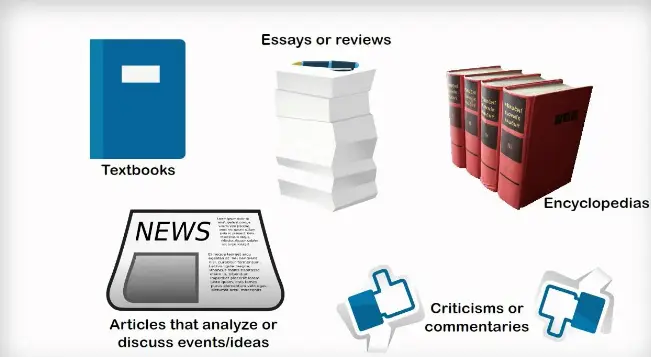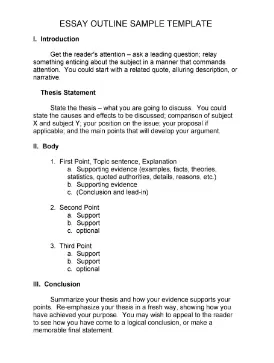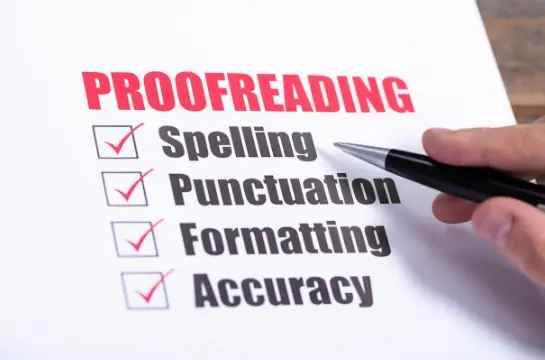How to Write and Get First-Class in an Essay: A Distinction

Essays cannot be avoided at any academic level. They play a huge role in the grades that students get. Therefore, every student needs to know how first-class essays are written to ensure that they get good grades in their different fields of study.
This enables students to consistently write good essays and cross the boundary between average and good to excellent scores. To add to that, understanding the purpose of the essay is what determines the score of the essay. You can write a first-class essay, but if it does not serve the purpose it was meant to, then it leads to failure.
6 Steps to Write a Good Essay
1. Research the Topic
To begin your research, read and understand the topic properly to ensure that everything you will look into relates to what the topic requires. The instructions that are given usually bear the nature of the research.

For example, a topic could contain terms such as compare, discuss, prove, and contrast that dictate what to do in the essay.
After understanding the topic, brainstorm the ideas that you will write in the essay. This helps you understand the topic more before delving into deeper research.
When researching the topic, you should use relevant books and peer-reviewed journal articles. Also, only government and education institutions’ websites should be used for research.
While researching, take notes on important points you will use to form arguments in the essay.
Have a dictionary on your side to make sure you understand the meaning of terms you are unfamiliar with. Additionally, formulate your arguments, opinions, and views to avoid plagiarism.
Lastly, write down all the sources you have retrieved information from for the reference page at the end of the essay
2. Prepare an Outline
An outline is important because it helps plan the structure of the essay before writing it. It involves writing a few summary sentences under every major point to give you a picture of how each argument will unfold in the essay.
Sometimes you can be required to submit an outline before writing the essay, but it is equally important even if it has not been requested. To write an outline:
3. Organize your Material
Ideas are not fully formed when writing the essay outline. Preliminary research and sources should help in shaping your ideas into structural arguments. Once you have an idea of how your overall argument will look arrange your content into several arguments.
The different aspects of your arguments should be arranged into categories. For example, you can split your arguments into three main themes. These themes should relate to the thesis statement of the essay.
Also, consider the order of information. It is usually advisable to start with your stronger arguments.
4. Write the outline
A few points should be used to discuss the relation between every idea and the main topic in different paragraphs. The points are presented as short, numbered sentences and phrases that can be split into sub-points when more details are required.

For example, the introduction can have a hook, background, and thesis statement.
Under the body paragraphs, include points and follow them up with two or three pieces of evidence, and the conclusion can have a summary, the importance of the topic, and strong closing statements.
5. Write the thesis and introduction
The first task when writing the introduction of your essay is making sure that you hook the reader. The first sentence should set the tone for the whole essay.
It should be clear, concise, and catchy. Also, it should not be a broad claim or a plain statement of fact.
Secondly, you should give the background information. This is the context that your readers will need to understand the topic. It can be historical, geographical, or social context.
It can be a summary of relevant theories or the definition of key terms. Thirdly, write your thesis statement. This is where you narrow down the focus of your essay and show what your essay is all about.
The thesis statement sums up your overall arguments. It is the most important part of the essay that will require evidence and explanation throughout the essay.
Every argument made in the essay should reflect on the thesis statement. Therefore, it should reflect all the issues that are on the outline.
6. Write a draft essay
With the outline and introduction already written, you only need the body paragraphs and the conclusion to complete your draft essay.
Make sure that the last statement of your introduction, which is mostly the thesis, connects with your first body paragraph. Body paragraphs must have a topic sentence. They also should link with the thesis statement to show that they are relevant and advance your arguments.
No conclusion statements are needed in paragraphs. Additionally, all paragraphs should be connected with the previous one to enhance the free flow and understanding of the reader. The length of the paragraphs should be as your instructor requires.
However, most paragraphs should range from 90 to 130 words to make the arrangement logical.
The conclusion paragraph should synthesize the arguments made in the body paragraphs. It also should reflect on the introduction, but it is important to make sure there is no repetition involved.
The conclusion should reiterate your essay arguments and not introduce any new ideas or make recommendations. It should be simple and straight to the point.
7. Reference your Sources
Two ways are used when referencing sources in essays. One is the in-text citation, and the other is the reference page.
In-text citations are a brief form of references that you include in the paragraphs of your essay. The information they give should be enough to identify a source on the reference list. The technique used when writing in-text citations depends on the writing format used in the essay.
APA, MLA, Harvard, and Chicago formats all have different ways of writing citations.
On the other hand, the reference page is the last page of the essay. It lists all the sources cited in the essay so that readers can easily find what you have cited.
Similar to in-text citation, the formatting method used determines how the defense page will be written. Therefore, it is important to master all the different formatting methods to ensure you cite essays, as they require
8. Proofread your Essay
Proofreading essays is important in ensuring that they are error-free before submission. You can write the best content in the world, but if it has spelling, grammatical, and structural errors, then you are likely to fail.

To proofread your essay effectively, you will need to:
- Read your essay backward. This helps you look at the surface elements of the essay rather than its meaning.
- Proofread for one type of error at a time. This is done to your known typical mistakes. If they are full stop and comas, read the essay two times, correcting each typical mistake at a time.
- Take a break after writing before you proofread. This helps read through the paper with a fresh mind to increase the chances of detecting every mistake made.
- Ask someone to read your paper for you. Other people will likely have different views to the one that you have and probably detect mistakes you cannot.
- Proofread severally. Do not go through the paper once and think that you have cleared all the errors. Read it again and again.
Read our guide on how to write a college essay.
Tips on how to get first-class in an essay
The pass mark of getting first-class in essays that is hard for many students to get can be achieved if the following tips are understood and put into practice:
Know the marking criteria
Always know what the instructor is looking for so that you can meet the demands of the essay effectively. Mostly, instructors provide a rubric with instructions and sections of essays together with the score expected if they are done effectively.

This is what you are required to do. Do not assume. Always follow the criteria and instructions provided to get full marks.
Understand the Essay Topic or Question
It is important to understand the topic of the essay before you start writing it. You cannot get a high grade if your essay deviates from the essay topic and question.
If you are required to support, oppose, discuss, or summarize a topic, which is exactly what you are supposed to do to maximize the chances of getting a high grade.
In instances where you don’t understand the essay question or topic, you can ask for help from your instructor or other students.
Quality Sources and Referencing System
A first-class essay should always demonstrate your awareness of available literature on the essay topic and your familiarity with the empirical and theoretical literature applicable.
Books are the most common sources of information, but peer-reviewed journal articles are also reliable because they are published frequently. A first-class essay will always reference these sources and not online unverified sources.
Only websites of government, reputable academic databases, and scholars should be referenced. This ensures that the credibility of your essay’s arguments is not in question.
Frame your Argument Coherently
When you go through the available information, form your opinion on the essay question. Keeping the essay question in mind is important when tailoring arguments and viewpoints to ensure that you do not go out of topic.
Each argument is represented in its paragraph. A first-class essay will always demonstrate logical thinking and a high level of reasoning in each argument made in the essay.
Structure your Essay and make it Clear
The introduction, body paragraphs, and conclusion of your essay should serve their purpose. The introduction paragraph should always show what your essay is all about and include the thesis statement.
The body paragraphs should always systematically present the arguments. The conclusion should summarize everything about the essay. To add to that, the essay should engage the reader through the use of appropriate technical terms.
The language used should be formal and avoid jargon and hard vocabulary.
Originality

Even if you are required to use different sources to make arguments, do not copy. Always try to understand arguments and present them in your way. Plagiarized work leads to poor grades.
Frequently Asked Questions
Is it hard to get first-class in an essay?
It is not hard to get first-class in an essay. All you need to do is to make sure you are thorough in every aspect of the essay. Everything should be perfect, from the beginning of the research to proofreading.
How do you write an introduction to a first-class essay?
An introduction to a first-class essay should introduce the essay effectively. It should grab the attention of the reader and provide a background of information that gives the reader knowledge about the essay. Lastly, it should end with a thesis statement
How do you start an essay well?
To start the essay well, you need to know what the essay is all about and introduce it in a way that the reader will grasp everything about it after reading the first paragraph. If the introduction does not make the reader want to read more of the essay, then it has not achieved its purpose.
How long does it take to write a good essay?
The time taken to write a good essay always depends on the number of words required and the expertise of the writer. Experienced essay writers take a shorter time writing an essay compared to inexperienced writers. Also, the amount of time that research takes determines how long it will take to complete writing a good essay.
How do you get an A on an essay?
To get an A on an essay, do quality research and formulate a good thesis statement. Also, write an outline that will guide your writing and start your essay. At the end, cite reliable sources of information and adhere to the format required before proofreading the paper thoroughly to check for errors.
An essay should be structured on three parts. The introduction where what the essay is all about will be presented. The body paragraphs where all the arguments will be fully discussed and the conclusion where the essay will be summarized.




